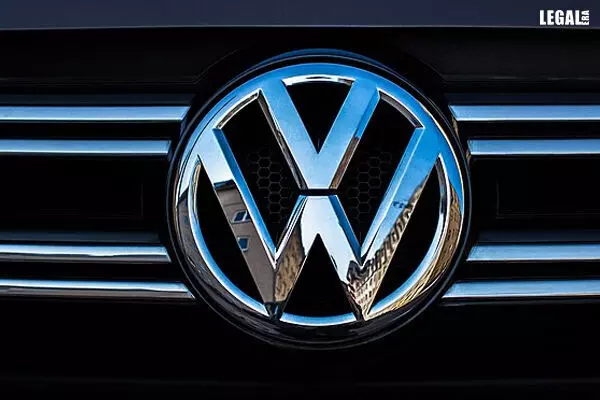- Home
- News
- Articles+
- Aerospace
- AI
- Agriculture
- Alternate Dispute Resolution
- Arbitration & Mediation
- Banking and Finance
- Bankruptcy
- Book Review
- Bribery & Corruption
- Commercial Litigation
- Competition Law
- Conference Reports
- Consumer Products
- Contract
- Corporate Governance
- Corporate Law
- Covid-19
- Cryptocurrency
- Cybersecurity
- Data Protection
- Defence
- Digital Economy
- E-commerce
- Employment Law
- Energy and Natural Resources
- Entertainment and Sports Law
- Environmental Law
- ESG
- FDI
- Food and Beverage
- Gaming
- Health Care
- IBC Diaries
- In Focus
- Inclusion & Diversity
- Insurance Law
- Intellectual Property
- International Law
- IP & Tech Era
- Know the Law
- Labour Laws
- Law & Policy and Regulation
- Litigation
- Litigation Funding
- Manufacturing
- Mergers & Acquisitions
- NFTs
- Privacy
- Private Equity
- Project Finance
- Real Estate
- Risk and Compliance
- Student Corner
- Take On Board
- Tax
- Technology Media and Telecom
- Tributes
- Viewpoint
- Zoom In
- Law Firms
- In-House
- Rankings
- E-Magazine
- Legal Era TV
- Events
- News
- Articles
- Aerospace
- AI
- Agriculture
- Alternate Dispute Resolution
- Arbitration & Mediation
- Banking and Finance
- Bankruptcy
- Book Review
- Bribery & Corruption
- Commercial Litigation
- Competition Law
- Conference Reports
- Consumer Products
- Contract
- Corporate Governance
- Corporate Law
- Covid-19
- Cryptocurrency
- Cybersecurity
- Data Protection
- Defence
- Digital Economy
- E-commerce
- Employment Law
- Energy and Natural Resources
- Entertainment and Sports Law
- Environmental Law
- ESG
- FDI
- Food and Beverage
- Gaming
- Health Care
- IBC Diaries
- In Focus
- Inclusion & Diversity
- Insurance Law
- Intellectual Property
- International Law
- IP & Tech Era
- Know the Law
- Labour Laws
- Law & Policy and Regulation
- Litigation
- Litigation Funding
- Manufacturing
- Mergers & Acquisitions
- NFTs
- Privacy
- Private Equity
- Project Finance
- Real Estate
- Risk and Compliance
- Student Corner
- Take On Board
- Tax
- Technology Media and Telecom
- Tributes
- Viewpoint
- Zoom In
- Law Firms
- In-House
- Rankings
- E-Magazine
- Legal Era TV
- Events
U.S. Federal Court Rules in Favor of Volkswagen against US Counties’ Diesel Emissions Claims

U.S. Federal Court Rules in Favor of Volkswagen against US Counties’ Diesel Emissions Claims
The U.S. Federal Court at San Francisco has ruled in favor of Volkswagen in lawsuits brought against the automaker by two U.S. counties over its diesel emissions cheating scandal.
According to the U.S. District Judge Charles Breyer, neither Utah's Salt Lake County nor Florida's Hillsborough County was able to prove that Volkswagen violated their regulations against tampering with emission control systems in vehicles in order to prove that Volkswagen manipulated emission control systems.
The counties are at liberty to appeal to the San Francisco-based 9th U.S. Circuit Court of Appeals.
Robert Giuffra, lawyer representing Volkswagen, said the decision puts the company near the end of the diesel litigation road in the U.S.
In May the company agreed for an $85 million settlement with Texas, the last remaining state suing the company, though that deal is not yet final.
In 2015 Volkswagen had revealed that it had cheated emissions tests by installing so-called ‘defeat devices’ and sophisticated software in 11 million vehicles worldwide, allowing them to reduce emissions only during emissions tests.
Previously, the company had agreed to pay more than $20 billion in criminal and civil penalties and settlements to U.S. federal regulators, states, dealers and owners. Worldwide, it has paid out a total of more than $30 billion.
In 2020, the Ninth Circuit ruled that the state and local governments were not allowed to bring lawsuits against car manufacturers over defeat devices and software originally sold with the vehicles, because that was left up to the federal Clean Air Act and the US Environmental Protection Agency.
However, it allowed them to sue over updates to the software installed later during maintenance.
In the end, Judge Breyer rejected the counties’ claims with respect to the updates because, in his view, there was no evidence to indicate that they exacerbated the pollution of the air in the claimed areas.


